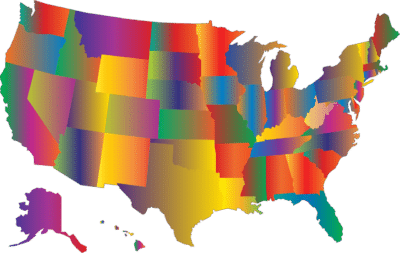
What is COBRA?
COBRA was created in 1986 as part of the larger Employee Retirement Income Security Act of 1974 (ERISA). It gives certain workers the right to pay premiums and keep their group health insurance coverage in certain situations. Before Congress passed the ERISA law, people who had health insurance through their employer lost it as soon as they left their job for any reason. After COBRA was passed, workers who left a company that offered health insurance could choose to keep their coverage temporarily. COBRA coverage is often much more expensive than what active employees pay for their group health plan because the company typically pays for some or all of the coverage.
Under COBRA you, as the employer, are no longer responsible for any health insurance costs. All medical bills can be charged directly to the ex-employee who is receiving the services. COBRA is usually offered to qualifying employees for anywhere between 18-36 months. However, COBRA eligibility and how long the coverage continues depends on certain circumstances.
Who Is Required To Offer COBRA?

Another thing to think about is that even if the federal government doesn’t require you to offer COBRA coverage, your state might. Some states have passed “mini-COBRA” rules that cover people who work for businesses with group health plans, but have fewer than 20 employees.
Mini-COBRA
Like federal COBRA, mini-COBRA laws require group health plans to give continuing health coverage to eligible employees who would otherwise lose coverage because of a qualifying event. One big difference is that mini-COBRA rules cover a wider range of people. Mini-COBRA rules usually cover employers with less than 20 workers, while federal COBRA only covers employers with 20 or more workers. In a few states, the number of workers is between 2 and 19. Some states require almost all workers, no matter how big or small, to follow the rules of mini-COBRA.

- Arkansas
- California
- Colorado
- Connecticut
- District of Columbia
- Florida
- Georgia
- Illinois
- Iowa
- Kansas
- Kentucky
- Louisiana
- Maine
- Maryland
- Massachusetts
- Minnesota
- Mississippi
- Missouri
- Nebraska
- Nevada
- New Hampshire
- New Jersey
- New Mexico
- New York
- North Carolina
- North Dakota
- Ohio
- Oklahoma
- Oregon
- Rhode Island
- South Carolina
- South Dakota
- Tennessee
- Texas
- Utah
- Vermont
- Virginia
- West Virginia
- Wisconsin
- Wyoming
If your business is subject to mini-COBRA, you have to let eligible workers know that state law gives them the right to keep their coverage. The date for giving notice varies by state, so check your state’s laws to make sure you get the word out on time. Even though the rules for other mini-COBRA notices vary by state, they may be similar to those for federal COBRA.
When Does COBRA Apply to Group Health Plans?
The law says that a group plan is “any arrangement that an employer sets up or keeps up to provide medical care for employees or their families.” This can be done through insurance, a health maintenance organization, the employer’s assets, or some other way. Group health plans that don’t meet this definition are not covered by COBRA, but they may be subject to certain state continuation rules. COBRA does not apply to other group benefits, like life insurance or disability payments. If your business has 20 or more workers and offers group health insurance of any kind, it’s best to talk to an expert about COBRA eligibility to avoid fines or penalties.
Eligible Employees
Employees may be qualified for COBRA continuation coverage if they are enrolled in an eligible group health plan and meet certain qualifying event requirements. This could mean:

- Full-time employees
- Part-time employees
- Spouses of eligible employees
- Dependents of eligible employees
- Retirees
There are limits to how long a company has to offer COBRA coverage. Even if the business has at least 20 employees, some employees won’t be able to get COBRA coverage because they didn’t choose a qualifying plan, the reason they were fired, or there were other special situations. This could mean:
- Employees who are ineligible for coverage in the group plan
- Workers who declined to participate in the group health coverage
- Employees who are enrolled for benefits under Medicare
- Employees terminated for gross misconduct
In addition to being an employee and being enrolled in a qualified group health plan, an employee must also have a qualifying event for COBRA coverage to continue. Usually, this will include something that causes the employee to lose group health benefits. For example, if an employee is fired for something other than gross misbehavior, their hours are cut, or they are laid off temporarily or permanently, they lose their benefits. Qualifying events can also include an employee’s spouse or dependents if they cause a change in status for the whole family and affect the family’s ability to keep health care. COBRA can be used to continue coverage for a spouse or child if:
- The covered employee passes away
- If a spouse gets divorced or legally separated
- The spouse or child lost coverage because the employee qualifies for Medicare
- The dependent child is no longer dependent on the employee (aging out of their parent’s coverage)
Employer Responsibilities
Plan administrators are required by law to tell people who are qualified when their status changes. In some cases, the employer is in charge of running the plan and must take care of all of these tasks. If you have workers who might be eligible for COBRA, you must do the following:
- Tell the group health plan administrator within 30 days of a qualified event if a person is eligible for COBRA.
- Give notice to employees who are qualified for COBRA within 44 days about their COBRA rights.
- If COBRA coverage is rejected for any reason, let the people who need it know within 14 days.
- If the employee chooses to keep coverage under COBRA, give them the same coverage as the plan they were on before the qualified event.
Once an employee has a qualifying event, COBRA requires group health plans to give the employee and any qualifying partner or dependents a time to decide if they want to keep their coverage under COBRA. Once the qualifying event happens, the person must have 60 days to choose to keep benefits or not. Even though everyone in a household who went through the same qualifying event has the same election period, each person’s election method is different. The employee, their partner, and any qualifying dependents can choose to get coverage or not, depending on what is best for them.
How EZ Can Help
Taking care of your workers is part of being the boss, and that means making sure they can get health care. A big part of your job is to know what their rights are and let them know about them, even after they’ve left your company. If you don’t stay on top of things like COBRA, you could face fines. We at EZ.Insure know that running a business is hard and that insurance is just one more thing to think about. We’d like to take some of that weight off your shoulders by giving you free, instant access to an informed agent. Enter your zip code in the bar below to start, or call 877-670-3531 to talk to an agent if you have questions or are looking for a new plan.

